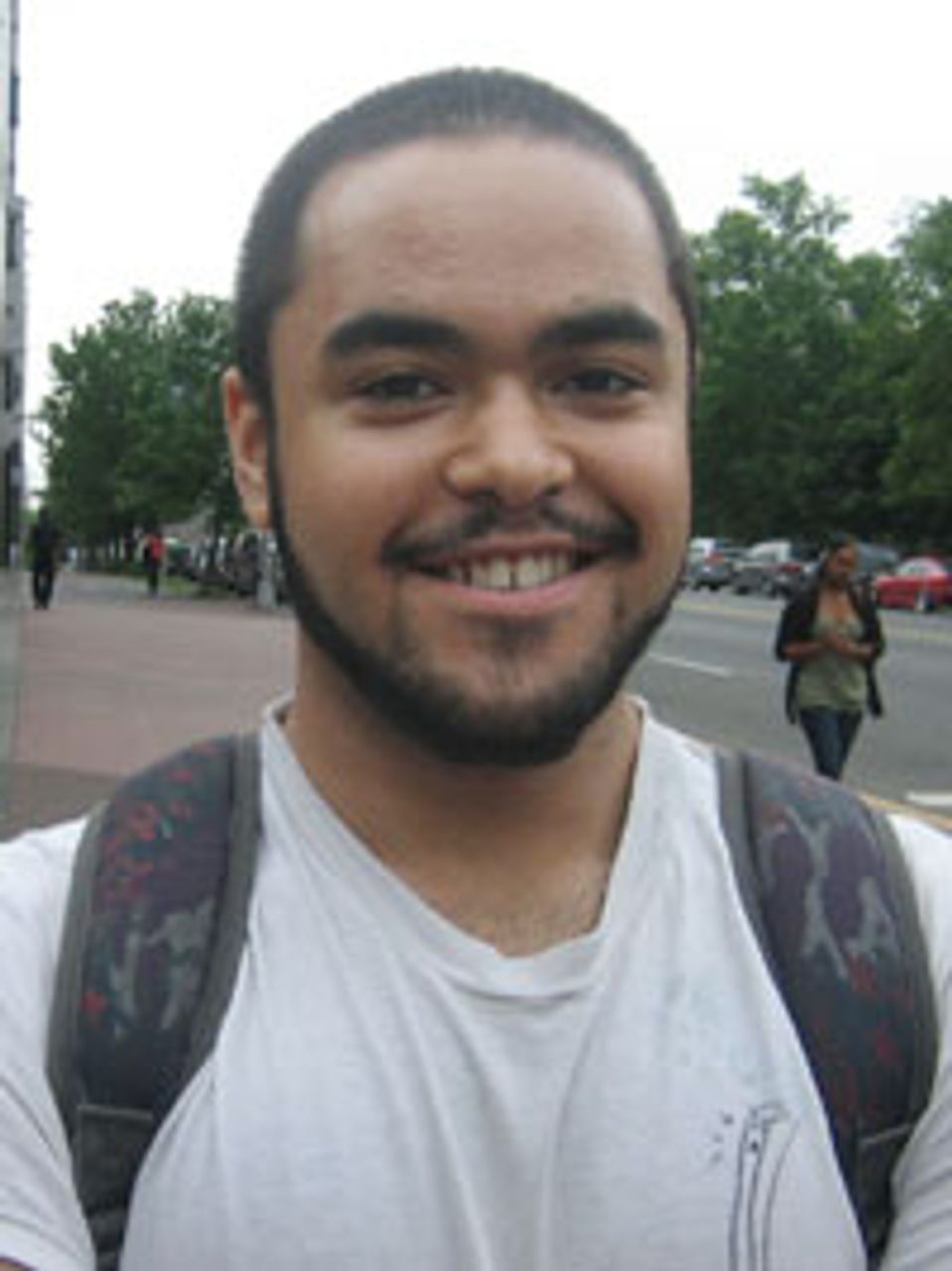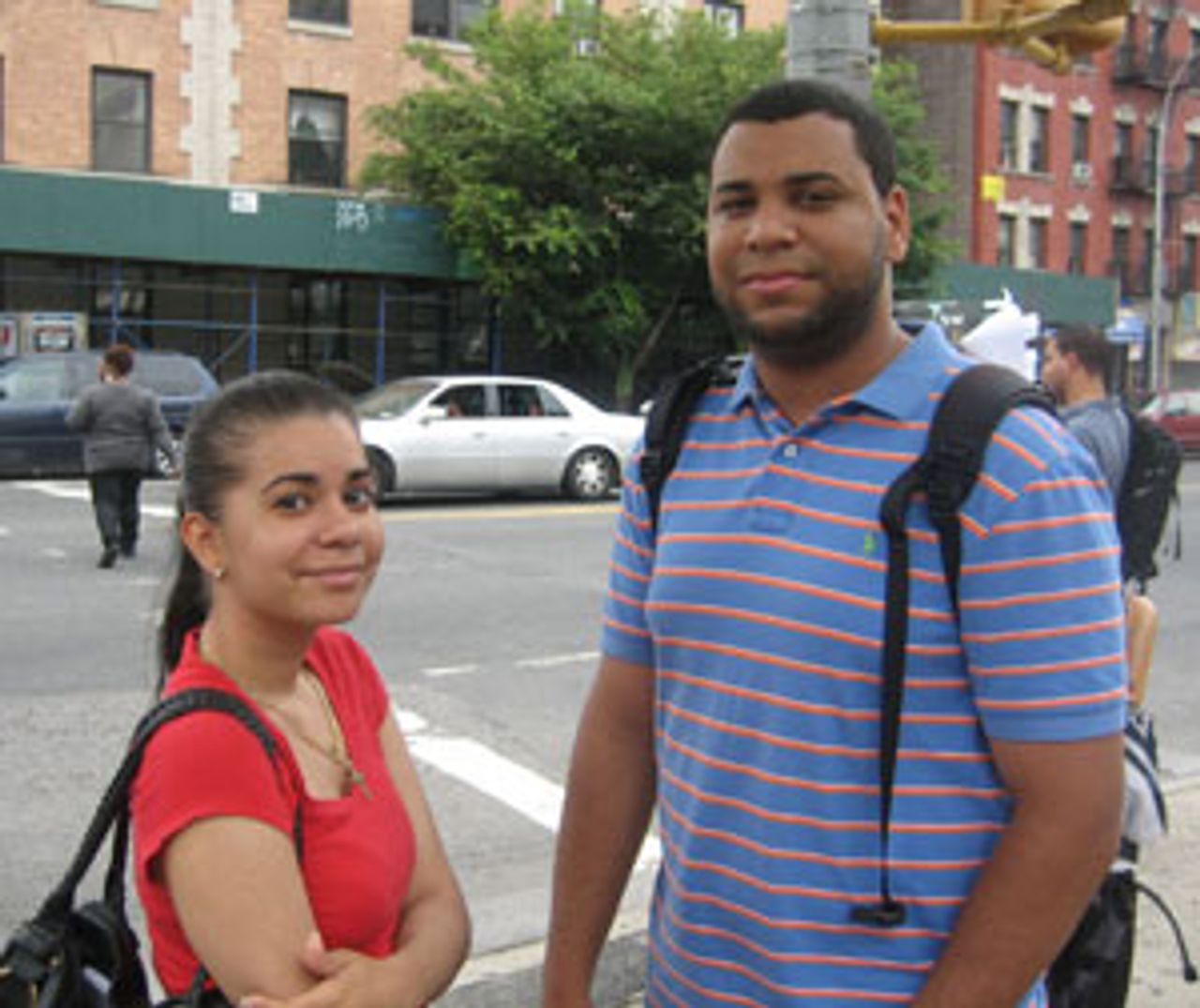This summer is expected to be the worst in recent memory for youth seeking employment in New York City. The massive disruption to the world economy brought on by the swindling of Wall Street investors has closed off the hope for jobs and careers for thousands of young people in the city’s five boroughs. For people between the ages of 16 and 24, the official unemployment figure stands at 25 percent.
The recession has had a brutal impact on all sections of New York City’s large and diverse working class, which includes millions of people ranging from those with college educations to those living in deep poverty. According to the latest official figures—which tend to gloss over the social reality—the unemployment rate for all workers in New York City is 8.6 percent of the 3.3-million-person workforce.
The real unemployment rate, however, which includes workers who have stopped looking for work and those who are working part-time but would rather have full-time work, is closer to 17 percent. African-American and Hispanic workers suffer much higher rates of joblessness.
As bleak as these figures are, the social position of the young people has become nothing short of devastating.
According to a study done in December by the Community Service Society, for 2009-2010, 58 percent of 16-24-year-olds in New York City were not in the labor force—that is, either they were not working but looking for work or they were not looking for work at all, for the most part because they had given up. For black youth, the figure was an astounding 62 percent.
Some economists estimate that 86 percent of young African-American men in the city do not have jobs. The recession, as one report noted, has almost completely pushed those without a high-school diploma out of the job market.
As high schools and colleges begin vacation and students search for summer jobs, the numbers of unemployed youth—including those who depend on summer work to help their families or to pay for school—will increase dramatically.
Youth in New York City, just like their counterparts across the country, are now forced to compete with adults for jobs in the private sector. Young people are being pitted against a more experienced workforce that is pressured to seek low-paying jobs after four years of an economic catastrophe.
Budget cuts have reduced even further the chances of young people finding jobs. The city’s Summer Youth Employment Program (SYEP), which employs youth between the ages of 14 and 24 in minimum-wage jobs, has been hit with major cuts. The SYEP will only offer 23,000 jobs this summer, employing 12,000 fewer youth than it did the previous summer.
By April 25, when registration opened, the SYEP had received 80,000 applications. The program in the past has witnessed more than 143,000 young people applying for summer jobs, and there is no reason to believe this summer will be different. The program employed 52,000 young people in 2009 reaching a peak in employment in over a decade. That almost 100,000 more youth applied than were accepted demonstrates the gross underfunding of the program.
Despite this underfunding, the program has continuously to face cuts on the city, state, and federal levels. This year, the SYEP will have $18 million less than it did last year.
Under New York City’s mayor, Michael Bloomberg, the money given to the program by the city has decreased by $12.4 million. The cuts made by Bloomberg have, in previous years, been compensated by the Obama administration’s Recovery Act, but this year all stimulus funds the SYEP gets from the Act are set to expire. That means that the Bloomberg and Obama administrations have taken away $18 million of the SYEP’s funds.
The SYEP is only one of the Department of Youth and Community Development programs that face budget cuts. Beacon Center program will have a 10 percent reduction in funding for 66 centers. The Beacon program has 80 centers throughout the city that operate year round giving students a place for recreation and summer jobs.
The reduction means the Beacon programs will have 28,000 fewer openings for jobs this year. In total, the DYCP will cut 28 percent of youth and summer jobs programs, leaving only 140,000 summer jobs offered by the city this year. While some funding was restored by the City Council, it is clear that these programs will suffer reductions at a time when they are needed the most.
This week, billionaire Mayor Bloomberg announced with great fanfare that the gigantic retail corporation Wal-mart is donating $5 million to summer youth jobs in the city. This bribe—Wal-mart currently has no stores in the city limits and desperately wants to open some—will provide a paltry 3,000 jobs for young people.
Such public relations gestures, promoted enthusiastically by the corporate media, take on an air of unreality against the backdrop of the real social conditions in America’s largest city.
The richest 1 percent of New Yorkers, about 35,000 families, earns $3.7 million a year or more. Manhattan real estate prices have risen recently because of the free spending of this tiny elite.
In 2007, the top 5 percent of income earners (those who make more than $167,000 a year) grabbed 58 percent of the share of the total income in the city. The “bottom” 50 percent (those who made $28,000 a year or less) had a share of less than 8 percent of the total income. This divide has grown dramatically since 1980s, and there is little doubt that three years of recession have made New York City one of the most unequal places on the planet.
The super-rich, including the city’s 71 billionaires, who triggered the financial meltdown through their reckless gambling on Wall Street, expect future generations of workers to bear the full burden of the crisis.
The widening a social chasm between rich and poor, combined with budget cuts to schools and colleges and high levels of unemployment among the youth, the most active and able section of the population, has laid the basis for social upheaval in New York City.
The WSWS recently spoke to young people in Harlem about their experiences with the jobs crisis:
Cynthia Paul, a 19-year-old college student, said, “I’ve applied to a lot of jobs between 2009 and 2011, mostly in retail. When I apply, I ask if they are hiring, and if I need experience. In the end, they don’t call back.
“I’m trying to build a resume but it’s hard when no one hires you. I’m in competition with people in their 20s, and employers want someone who can speak Spanish. I want a year-round job but I apply mostly in the summer because that’s when I have the most free time. I need a job to help support myself. My dad isn’t working, so I can’t rely on him.”
 Raphael
RaphaelRaphael, a sophomore at the City College of New York (CCNY), said, “I have a job at the White Plains sports club, but it doesn’t give us enough hours. It’s hard to get 20 hours a week, and you have to get 30 hours in order to collect benefits.
“I can’t expect a well-paying job after I graduate and could only expect a job at all in my neighborhood. That is because I have already made some connections there.
“My dream is to be a teacher and draw comics on the side. My parents are teachers. My mom works in Yonkers, and she talks about the cuts a lot. It would be hard to become a teacher at a good school. The good spots are already taken. I know White Plains High School is good, but it’s making cuts.
“The reason they make cuts is to spend money on wars or bailouts. We are spending all the money in all the wrong places, and that’s part of capitalism.”
Marlin, another student, told the WSWS, “I’m looking for a job, but I have no experience. I have to pay for college. I’m getting my bachelor’s. I used to work for McDonalds, and for a while I worked in an office. Now McDonalds won’t hire me.”
 Marlin and Alfredo
Marlin and Alfredo“For most jobs, I have to apply online or go to an open house. At the open house, they have you apply in person, get an interview, then they don’t call you back.”
Her friend Alfredo, who works at country club in White Plains, added, “I have a job on the weekends, but I need another. I have to travel a lot. I take a lot of cabs, and it’s expensive.”
Camille Sykes, a 23-year-old CCNY student, said she had been working for work since April: “I’ve applied at every retail store and I have experience. They say they want experience, but they still don’t hire me. I applied at school and would have gotten a position, but it was cut for lack of funds.
“A lot of money I use for food comes from student loans.
“I’m trying to get a degree, and it is hard get a job while in school. I moved from upstate, and it is harder to find a job in New York City. In the Bronx, they want people who can speak two languages. If it is still like this when I graduate, I would have to move. I love the city, but I have to eat.”
